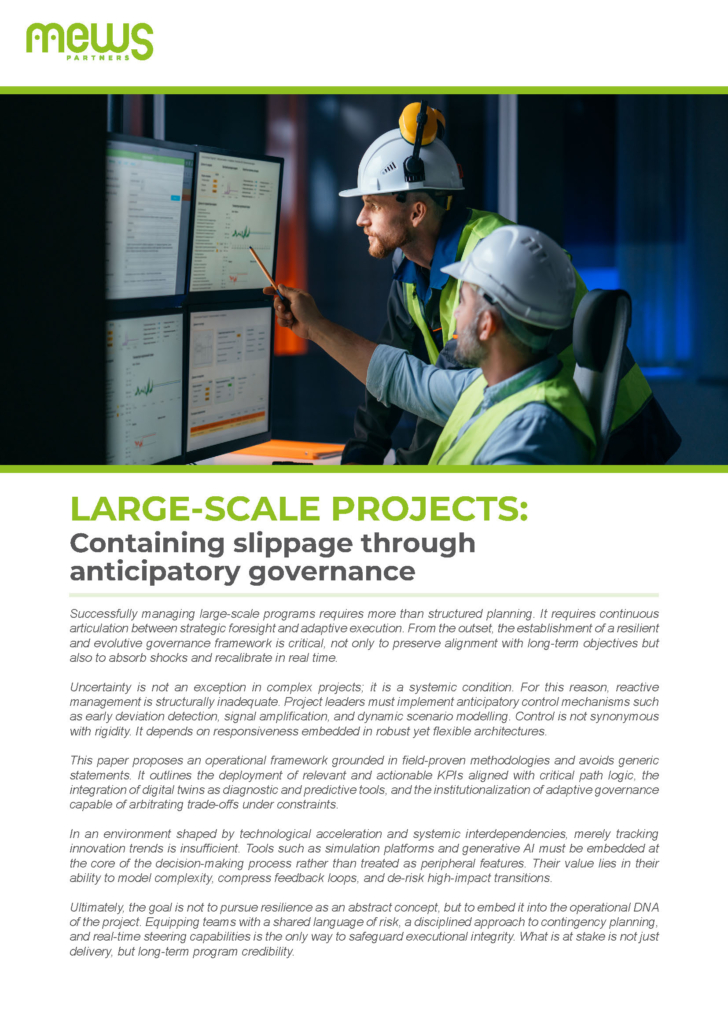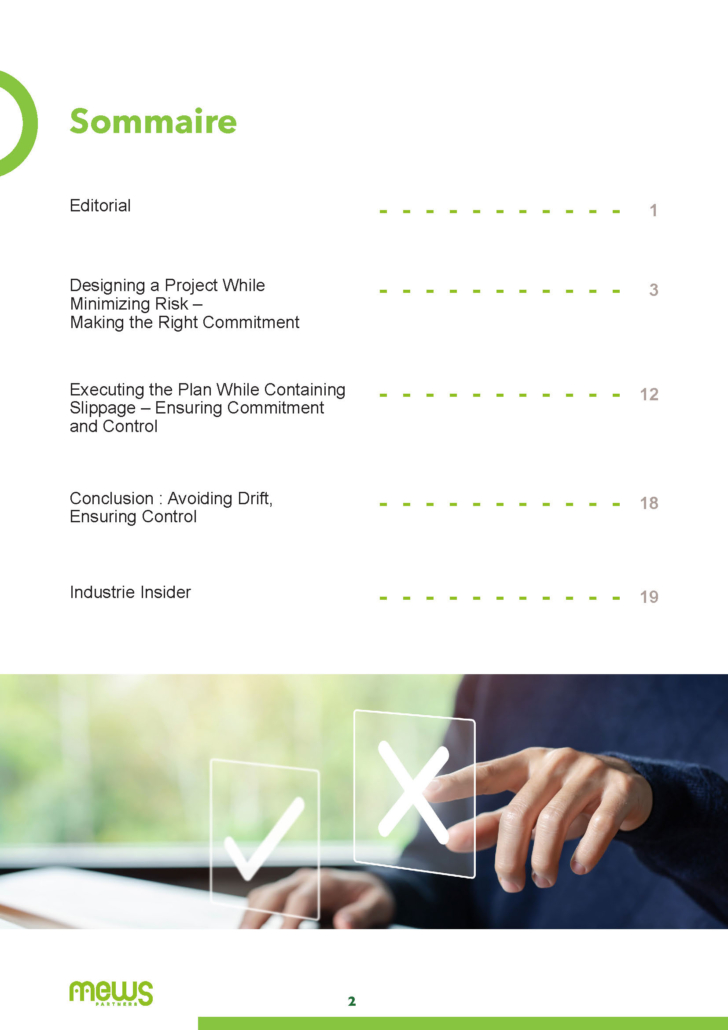Successfully managing large-scale programs requires more than structured planning. It requires continuous articulation between strategic foresight and adaptive execution. From the outset, the establishment of a resilient and evolutive governance framework is critical, not only to preserve alignment with long-term objectives but also to absorb shocks and recalibrate in real time.
Uncertainty is not an exception in complex projects; it is a systemic condition. For this reason, reactive management is structurally inadequate. Project leaders must implement anticipatory control mechanisms such as early deviation detection, signal amplification, and dynamic scenario modelling. Control is not synonymous with rigidity. It depends on responsiveness embedded in robust yet flexible architectures.
This paper proposes an operational framework grounded in field-proven methodologies and avoids generic statements. It outlines the deployment of relevant and actionable KPIs aligned with critical path logic, the integration of digital twins as diagnostic and predictive tools, and the institutionalization of adaptive governance capable of arbitrating trade-offs under constraints.



